August 12, 2011, 10:18 pm
NOTEBOOK OF A NOBODY
by Shanie
"It appears to us that a new and menacing element is crashing into the political scene, which element all responsible persons should determine to eradicate. If unchecked ,this deplorable violence cannot but harm and even destroy the democratic foundation on which our present society is built, whatever short term gain to one party or another....A special responsibility must lie on a government that law and order is maintained, and in particular that opposition demonstrators are not attacked by government supporters. For supporters of a government in power often feel that they can flout the law with impunity, and some leaders may even encourage them to do so. Similarly, there are always some police officers who are reluctant to be firm with those they believe to enjoy political patronage."
On 5th June 1980, opposition trade unions had organised a day of protest. Some of members of the present government including President Mahinda Rajapaksa supported this trade union protest. The then UNP government of J R Jayewardene responded to this protest by letting loose goons to attack the protesters, resulting in severe injuries to many and the death of one trade unionist D Somapala, a father of five children. The above is from a letter that the Rt Revd Lakshman Wickremesinghe, the then Anglican Bishop of Kurunagala, wrote in his capacity as Chair of the Civil Rights Movement to President Jayawardena to protest at the violence directed against the trade unionists. We know that none of the stirring pleas from Bishop Wickremesinghe, the Civil Rights Movement or anyone else made any impact on J R Jayawardena and the violence against the political opposition continued unabated.
It is true that the J R Jayewardene and his government opened up the economy, including the opening up lands for cultivation under the diverted the River Mahaweli. But his government is today best remembered for the repression of the opposition, which included removing its chief political opponent from the scene, virtually driving hundreds of the families of trade unionists to penury by dismissing them from their jobs, and for creating the conditions for the July 1983 pogrom against the Tamils, etc. In Shakespeare’s memorable words in Anthony’s speech at Caesar’s funeral: the evil that men do lives after them; the good is oft interred with their bones.
Double Standards
President Mahinda Rajapaksa would do well to remember the words of Bishop Wickremesinghe that seem as apt today as it was over thirty years ago. Thirty years ago, violence of all sorts was unleashed on the political opposition. Today the situation is no different. The government and its apologists are quick to highlight the atrocities of the LTTE, and, now in view of India’s seemingly strong stand on political devolution, on the atrocities committed by the Indian Peace Keeping Force in Jaffna over twenty years ago. The reports of the University Teachers for Human Rights are being quoted with approval in this regard. But the UTHR was interested in violation of human rights by all parties. They were not selective in their condemnation of atrocities by the different actors, which included the state security forces. Those who are vociferous in alleging double standards by other parties must not themselves be guilty of double standards.
The UTHR has this week drawn attention to their reports about the senseless killing of five students in Trincomalee and the brutal killing of 17 ACF workers in Muthur. The UTHR reports were well researched and painstakingly detailed. The government-appointed Udalagama Commission of Inquiry inquired into both, among others. Unfortunately, while the inquiry into the ACF massacres was going on, the government and the Attorney General were guilty of not bringing in the Witness Protection Law as requested by the Commission; the video-conference based evidence of witnesses living abroad was abruptly terminated by the government; and as a coup-de-grace, the Commission itself was not permitted to complete all its inquiries into atrocities when its warrant was not renewed. Despite these set-backs, Justice (Rtd) Udalagama and his Commissioners presented their report to the President on the inquiries they had completed, which included the Trincomalee and Muthur massacres. That was two years ago and to date, the report is accumulating dust in the President’s office. The only "leak", reported by the Asian Human Rights Commission, was an extract from the submissions of the Counsel for the Army published in the Ministry of Defence website purportedly as from the report of the Commission.
Assault on the Uthayan journalist
The latest act of violence is the brutal assault on the News Editor of the Jaffna-based Uthayan newspaper. It is reported that this assault took place within 50 metres of a security force checkpoint. Yet no arrests have been made to date. The President, as he often does, publicly asked for and received a report from the IGP. One supposes that this report, like the Justice Tilakawardane Commission report on corruption in military procurements, is for the President’s eyes only. Cabinet minister Douglas Devananda has denied any knowledge as to the perpetrators of this attack, though the people of Jaffna seem to have no doubt as to who is responsible. But the insensitivity of the government to the assault on this elderly journalist is best exemplified by the callously dismissive remark of the government spokesperson Keheliya Rambukwella that all he can do is to visit the injured journalist in hospital taking king coconut water.
But journalist Kuhanathan is not the only person this week to earn the wrath of Jaffna’s emerging, after Prabhakaran’s killing, warlord. On the day of the the recent local government election, Professor Ratnajeevan Hoole wrote that he had visited a polling booth in the Kayts area, where he found posters of President Rajapaksa and Douglas Devananda (with instructions as for which symbol the vote should be cast) pasted outside the polling booth and no polling agent other than that of the UPFA inside the booth. On Hoole’s intervention, the Police had removed the offending posters in that booth. But Hoole’s report was a devastating criticism of Devananda and his "undemocratic" activities, past and present. The result has been the filing of ‘criminal’ charges against Hoole in the Kayts Magistrate’s Court. According to a recent report, Hoole has been forced to flee the country.
Judicial independence and Military Professionalism
Hoole’s experience with a Magistrate in Kayts is not the first involving politicians where justice hangs in the balance. Thirty years ago, the judiciary took a strong stand against violence perpetrated by anybody and upheld the rule of law. Despite Jayewardene systematically rewarding persons whom the Courts had found guilty, the Judiciary stood firm with the then Chief Justice, who was brought from the unofficial Bar by Jayewardene himself, vehemently supporting his Judges who courageously upheld the rule of law. With increasing political violence, one has to live in hope that the same spirit of judicial independence will be restored today. The Asian Human Rights Commission reports almost daily of an ‘exceptional collapse of the rule of law’, of the excesses by the Police. Such cases are becoming far too numerous and it is the duty of the Police, the Attorney-General and the Judiciary to restore the image of the law-enforcement authorities.
Unfortunately, the public image of the law-enforcement authorities is that they are heavily politicised as never before. Thirty years ago, in addition to the judiciary, the Army was reasonably free of politics. In the North, for instance, despite public posturings by the Government Agent who appears to be doing her best to hold a delicate balance, no crucial decision is reportedly taken without military approval. The Governor is the former Northern military commander and the present military commander was a member of the Court Martial tribunal that sentenced Sarath Fonseka to a prison term that effectively deprived him from leading the political opposition to the government. It was not dissimilar to the effective deprivation, thirty years ago, of Sirimavo Bandaranaike from leading the political opposition to the then government. Once politicised, it is extremely difficult for an institution to restore its independent image. We have had numerous examples from around the world where the military had lost its professional image by the involvement of its leadership either by direct involvement in politics or by meekly submitting to the whims of politicians. Professional soldiers need to stand up to the highest standards of the military and divest themselves of involvement in politics or with political warlords.
Government-TNA talks
The hype that is being generated on the near-breakdown of the Government-TNA talks is again reminiscent of the situation thirty years ago. The talks have been going on for months and the objective of these talks was both to attend to the post-conflict reconstruction issues as well as to find a mutually acceptable solution to the National Question. On both counts, nothing substantial seems to have been achieved. Even on the simple matter of providing a list of the detainees still in custody, the government agreed but has been stalling in providing this list. It is believed the Lessons Leant and Reconciliation in its interim recommendations also wanted this list provided. The Attorney General heads a committee that is tasked with implementing the LLRC’s interim recommendations. One is not clear if any of the recommendations have in fact been implemented.
Going back to the Government-TNA talks, the impression being created by government spokespersons is that it is the TNA that is trying to break off talks and that the Parliamentary Select Committee is being appointed because of the intransigence of the TNA. In fact, the government decision to appoint a PSC was announced many months ago. One sees that clearly as an attempt to buy time to impose a solution that the government has already decided on – not 13 plus as promised by President Rajapaksa earlier but 13 minus. The APRC, which was more representative than the PSC would be, has already submitted its report. Why is that not being released or discussed. Is it because it does not quite accord with the ‘triumphalist’ post-conflict agenda of the dominant nationalists in the government? We are going back thirty years or more by the senseless propaganda against the TNA being carried out. By side lining, as was done all those years ago, the present TNA leadership,the government is only inviting extremist elements to take over.
The current wave of meaningless violence across England shows that only a spark is required to ignite the pent-up frustrations of a people. The violence there is seemingly without a cause; but obviously the less privileged and the poorer sections of the community had feelings of deep frustration at the insensitive educational and economic policies of the political establishment. The violence took everyone by surprise. Leaders need to be sensitive and listen with an open mind to the feelings and grievances of the people, supporters and opponents alike. That is the only way democracy can survive.
www island.lk
Jay Baruchel, Caitlin Cronenberg explore morality of murder in 'Humane'
for 31 minutter siden

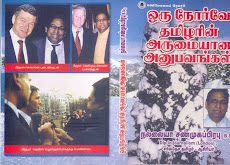
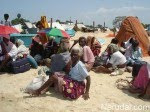
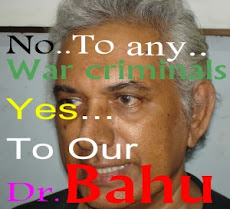

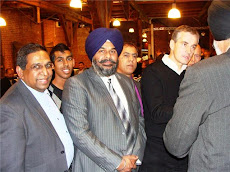


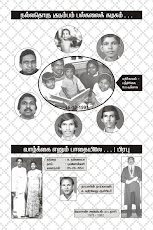
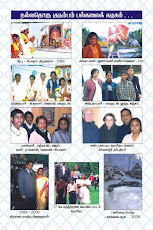
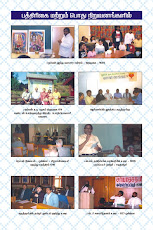
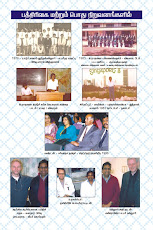
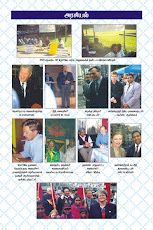
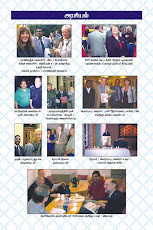

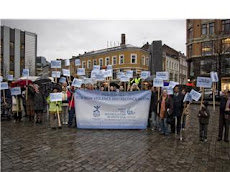


Ingen kommentarer:
Legg inn en kommentar